5 Everyday Exercise Habits for Strong Forearms, Trainer Says
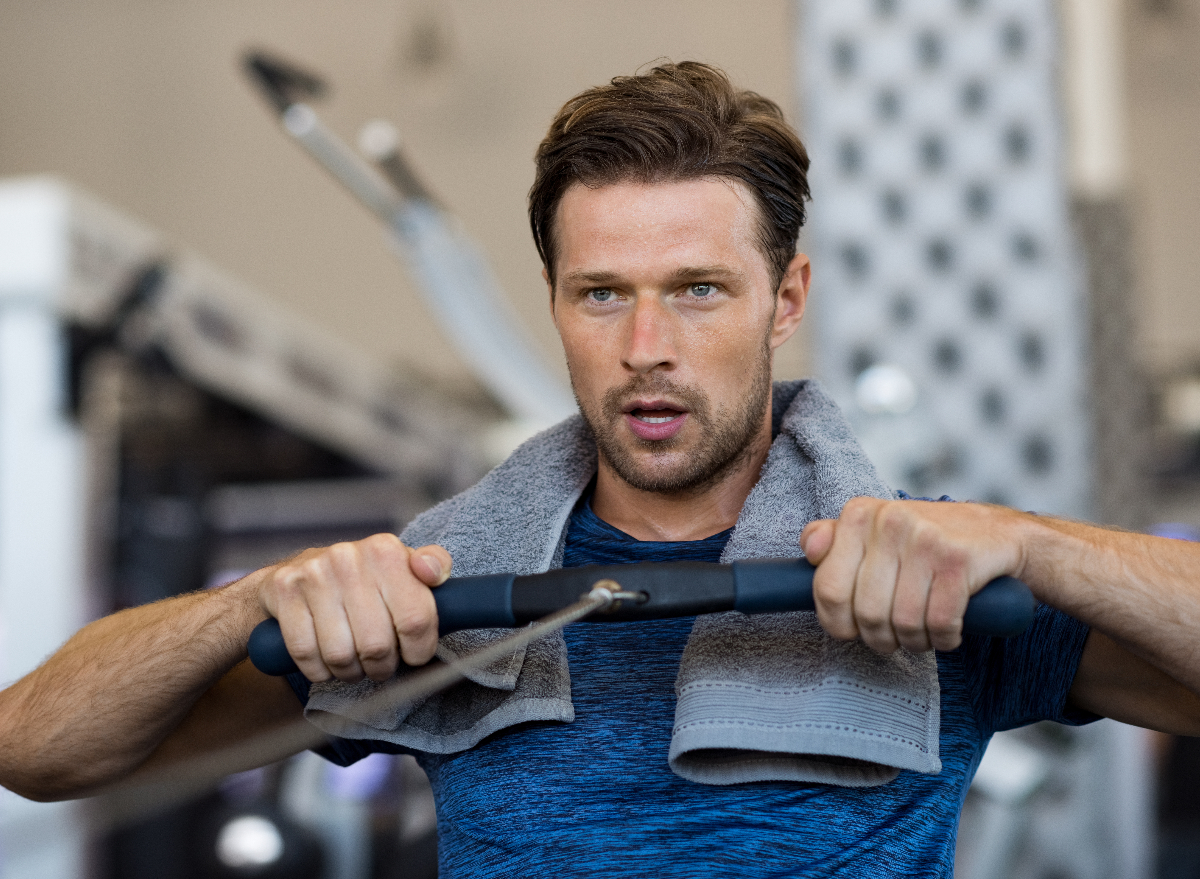
Having strong forearms is crucial for many people. It helps you carry objects in your everyday life and improves your performance on certain strength training exercises. And this is a biggie: Grip and hand strength are associated with mortality—scientific research backs this up! If you want to stay strong and fit as you get older, it's important to build your forearm strength. In honor of that, we've rounded up five everyday exercise habits for strong forearms.
Many individuals neglect training their forearms when compared to other body parts, such as their stomach, legs, or shoulders. However, because of the benefits, this is an area of the body you should make a priority to work. Luckily, there are a few habits you can incorporate into your exercise sessions to help train and improve them. Here are five of them to include regularly. Read on to learn more, and next up, don't miss Top-Recommended Exercises To Regain Muscle Mass in Your Arms.
Do farmer's walks.
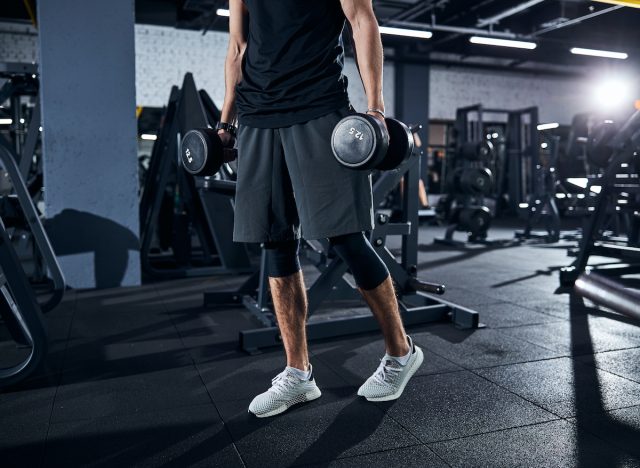
At the end of your workouts, consider finishing off with a couple sets of farmer's walks. This exercise will help improve your grip strength, forearms, and also your core. Let's learn how to complete it.
Begin by holding a pair of heavy dumbbells or kettlebells, one on each side. Keep your chest tall, your core tight, and your spine neutral. Brace your abs hard, then begin walking with control for 50 to 100 feet. Once you complete the distance, turn around, and walk back to the start.
RELATED: The Only 10-Minute Sleeve-Busting Arm Workout You Need
Add dead hangs to your routine, too.
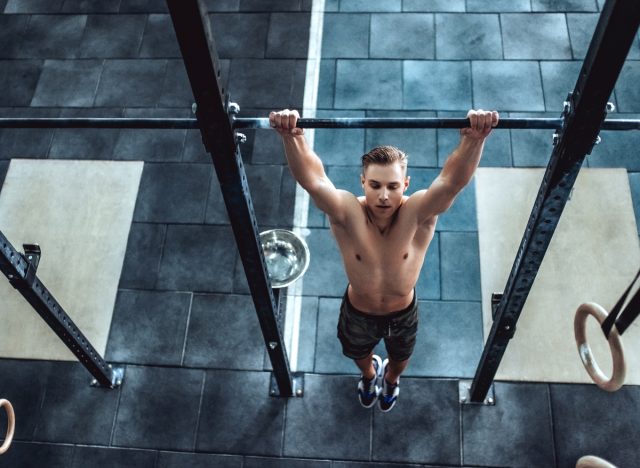
One of the best exercises you can possibly do to improve your forearm strength and endurance is the "dead hang." This move will improve your shoulder flexibility, while helping to decompress your spine. You can perform dead hangs along with farmer's walks at the end of your sessions.
To do this particular exercise, simply grip onto a chin-up bar, and get into a full hang position—your arms should be holding onto the bar, and your feet should be off the floor. Start with 30 seconds, and work your way up to 60 to 90. You've got this!
Do some arm curling movements.

Hammer curls and reverse curls are awesome exercises for your biceps by helping you build up your forearm strength. Because the forearms are more of an endurance muscle, you can perform sets of 12 to 15 reps with each exercise.
To perform dumbbell hammer curls, grab a pair of dumbbells with both hands facing each other using a neutral grip. Keep your shoulders pulled back, and curl the weights up, flexing your forearms and biceps the entire time. Squeeze hard at the top of the motion, then resist on the way down.
To perform reverse curls, grab an EZ bar with your hands in the pronated (overhand position). Keeping your chest tall and your core tight, curl the weight up toward you, flexing your forearms hard at the top. Lower under control until your arms are fully extended before performing another rep.
Complete one pulling exercise to challenge your grip strength.
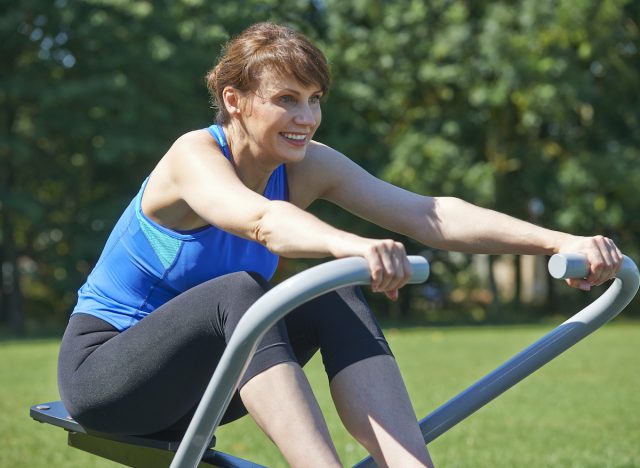
With each of your workouts, It's important to perform at least one pulling exercise, whether that may be a row, chin-up, or lat pulldown variation. The reason for this is that pulling movements challenge your grip strength—especially as the weights get heavier. Incorporate at least one difficult pulling exercise in each of your workouts.
Increase your training volume.
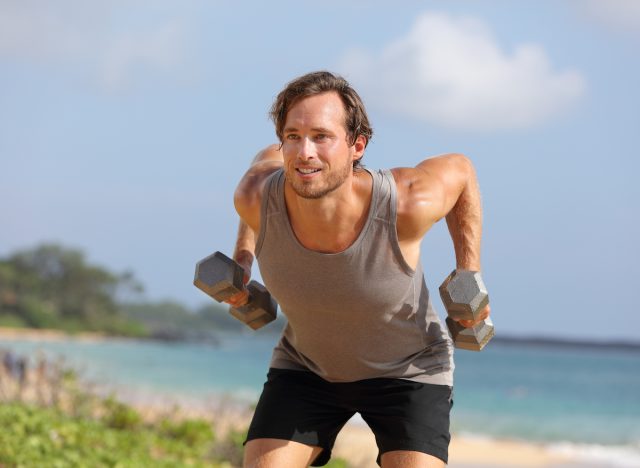
The forearms are a stubborn body part to train and require higher reps in order to grow. So in order to stimulate them efficiently, it's necessary to increase your training volume in each of your exercises. This means throwing in an extra set, or a couple of extra reps to make your forearms really burn and work hard.








